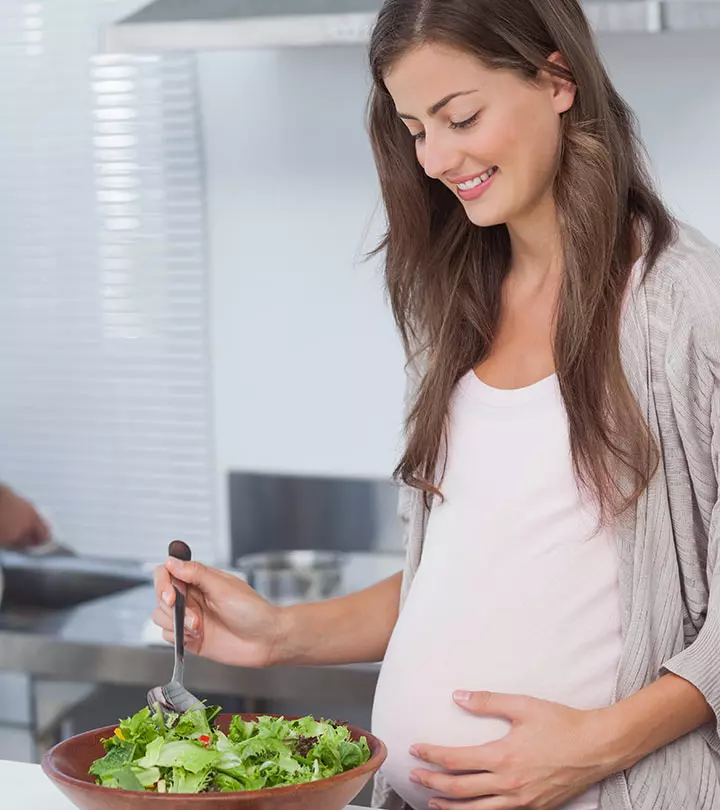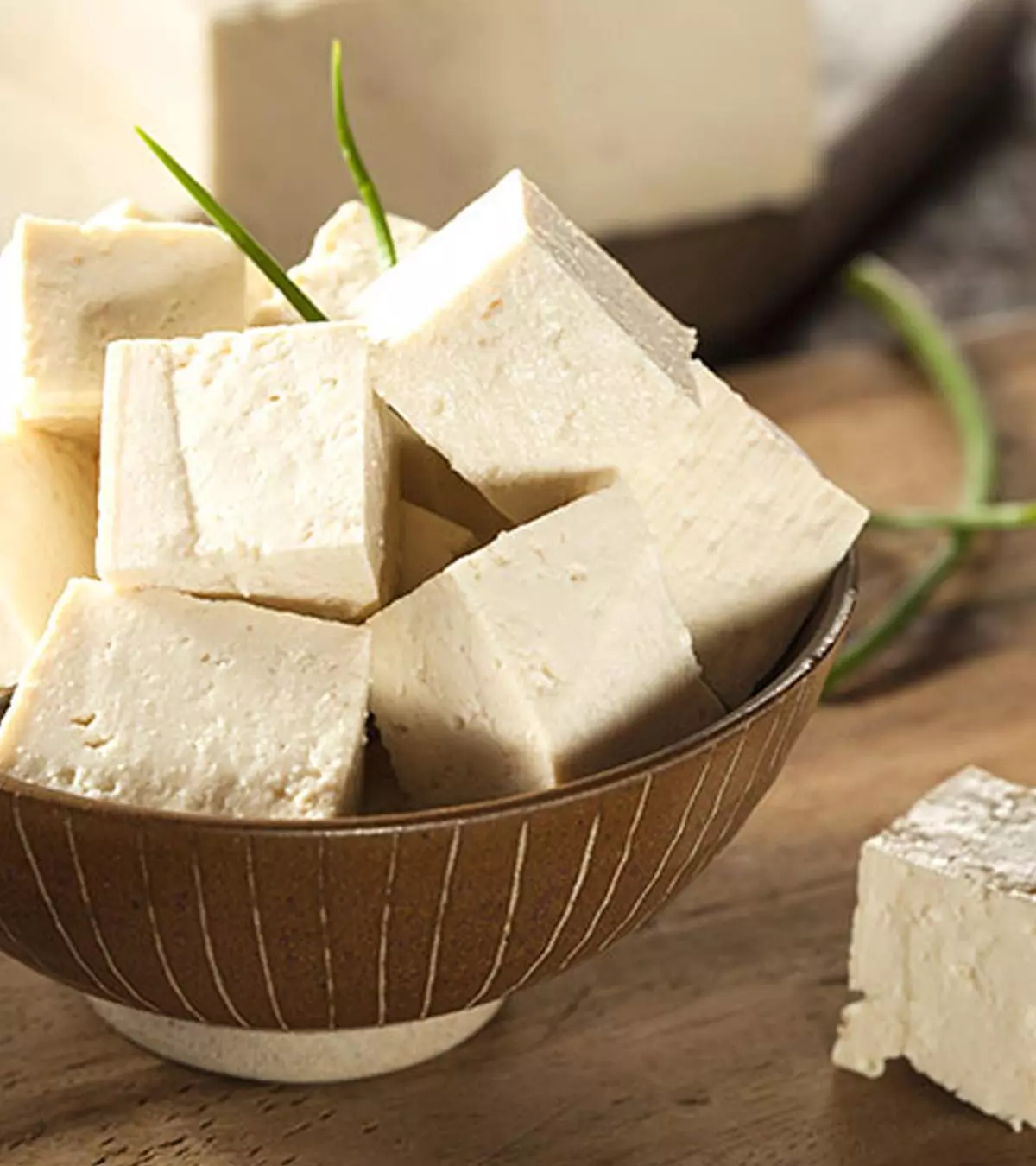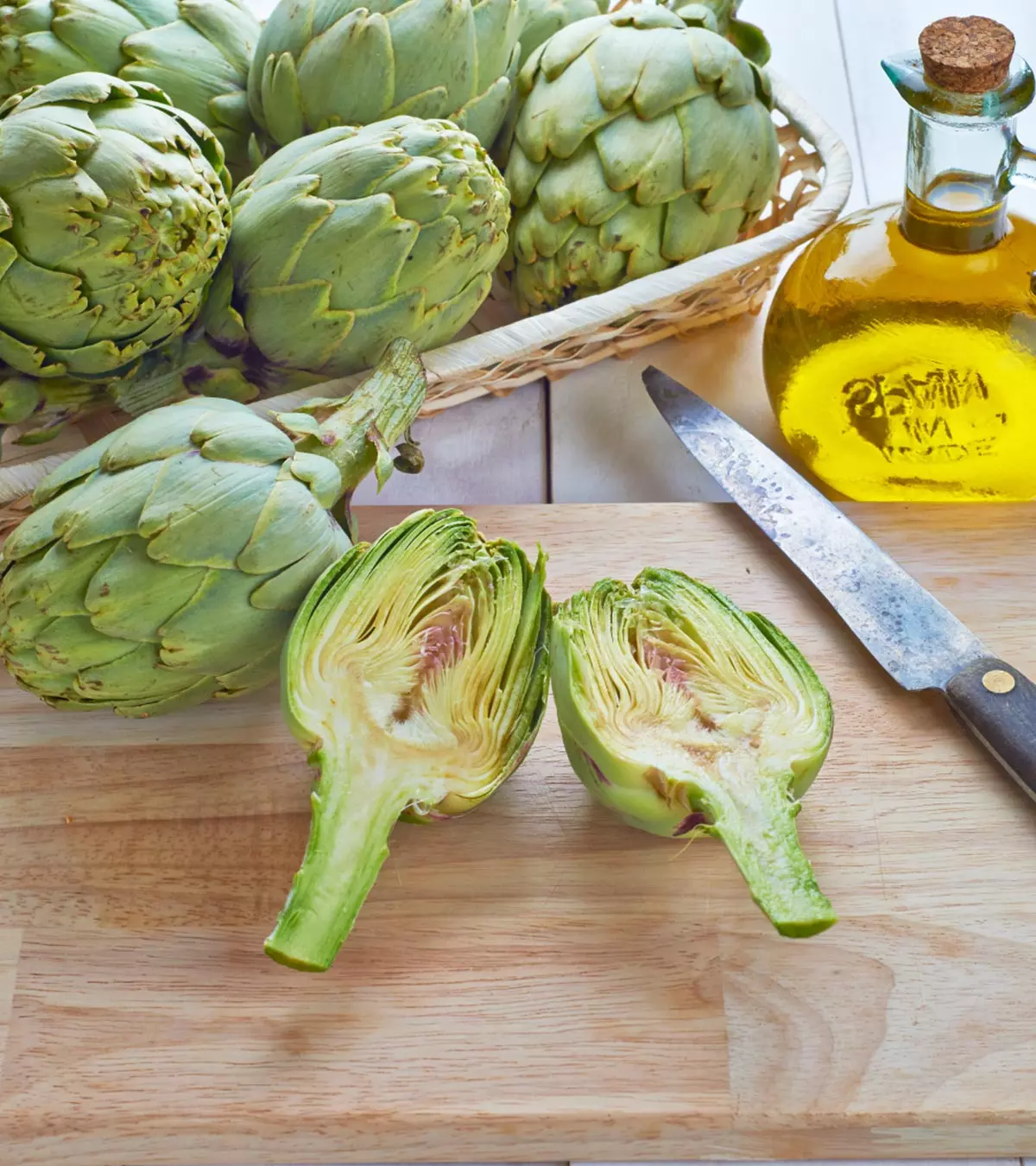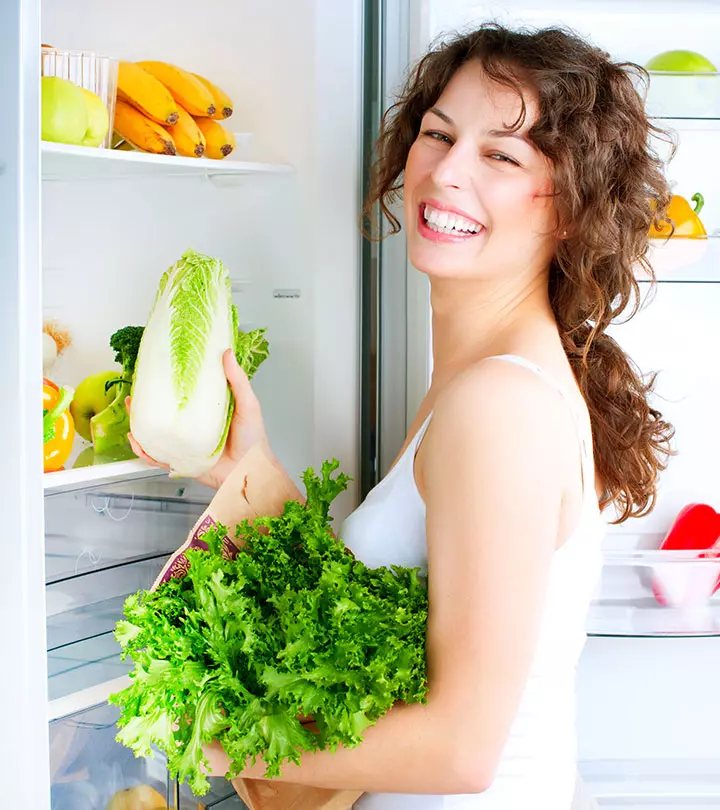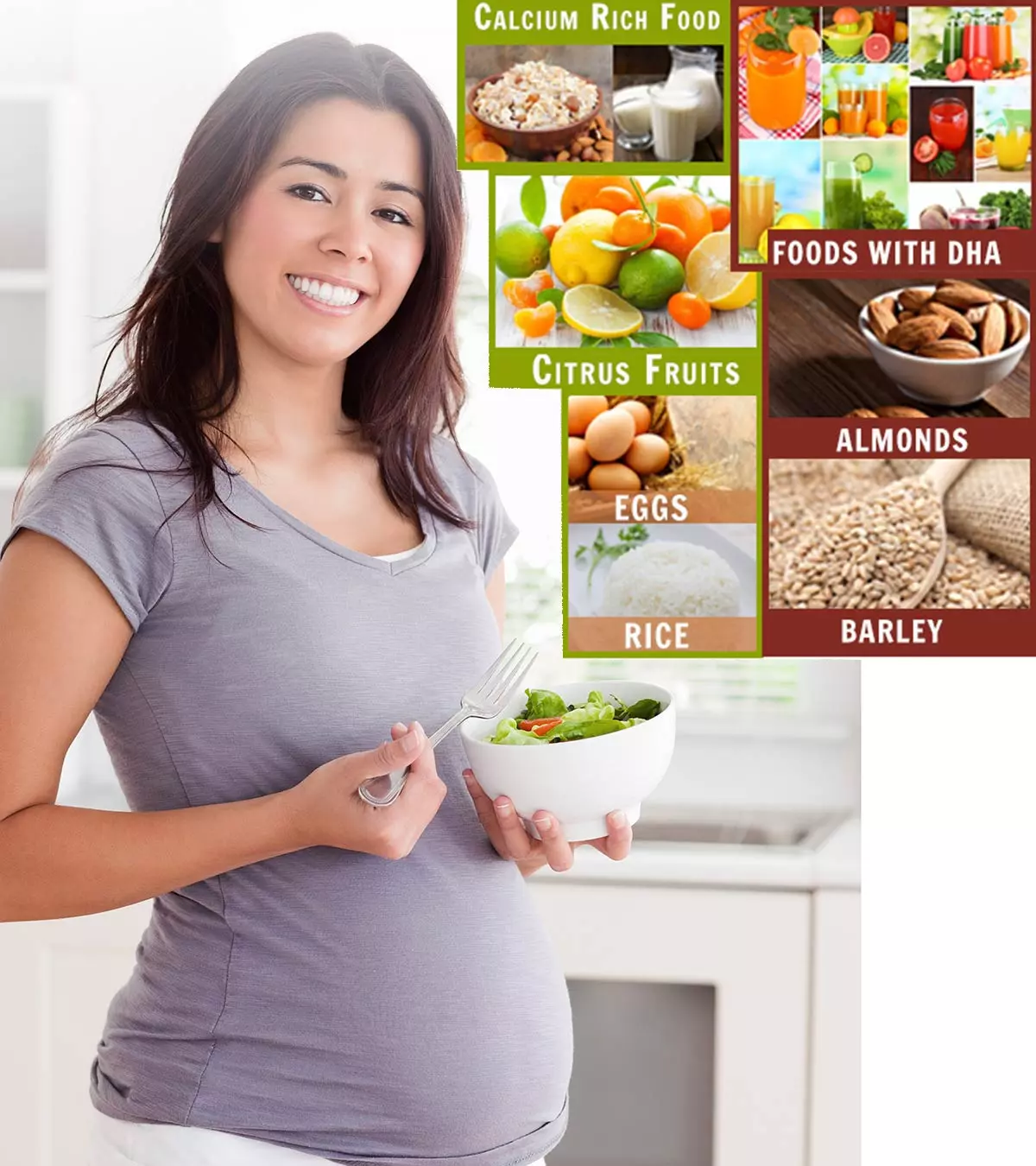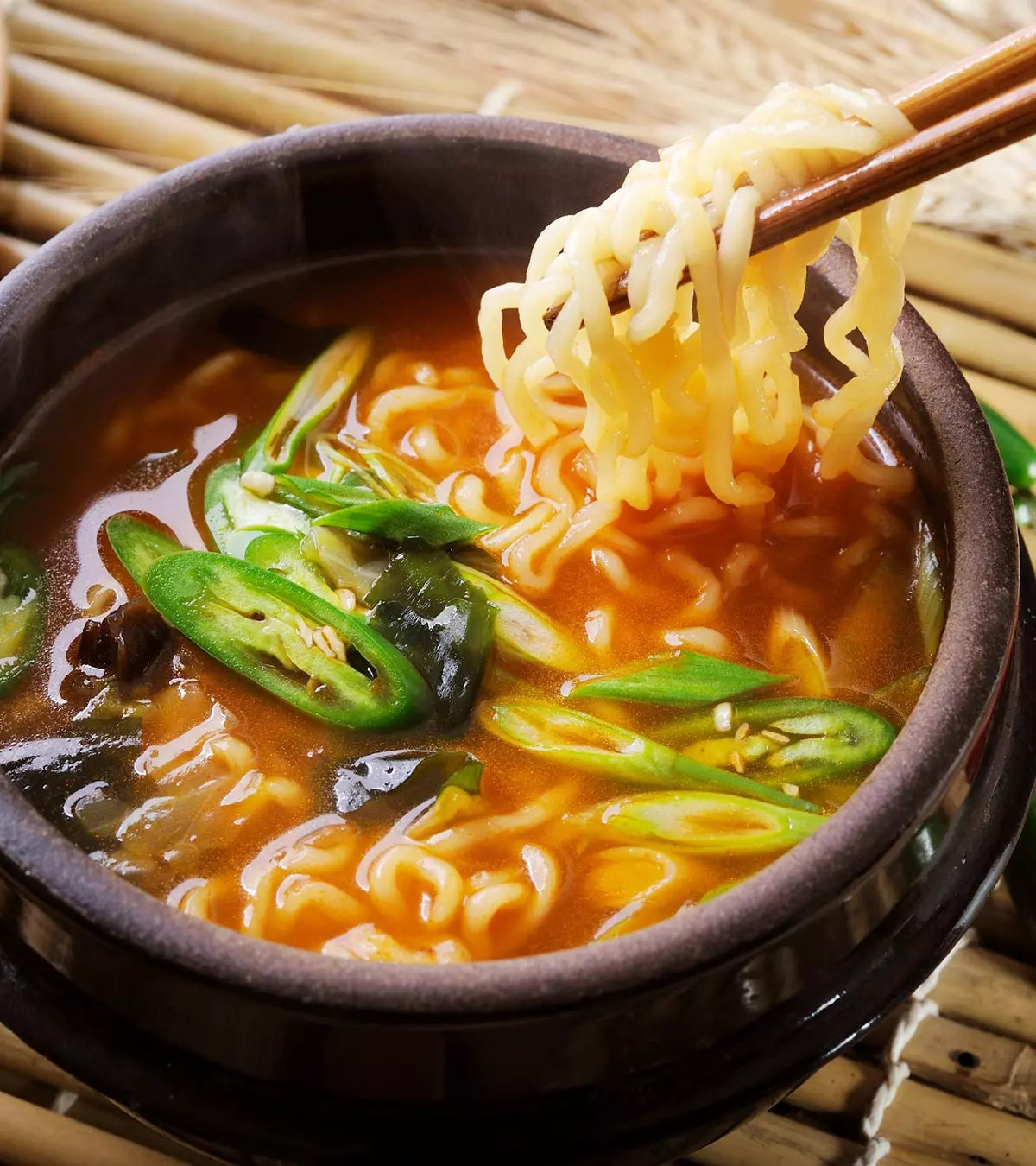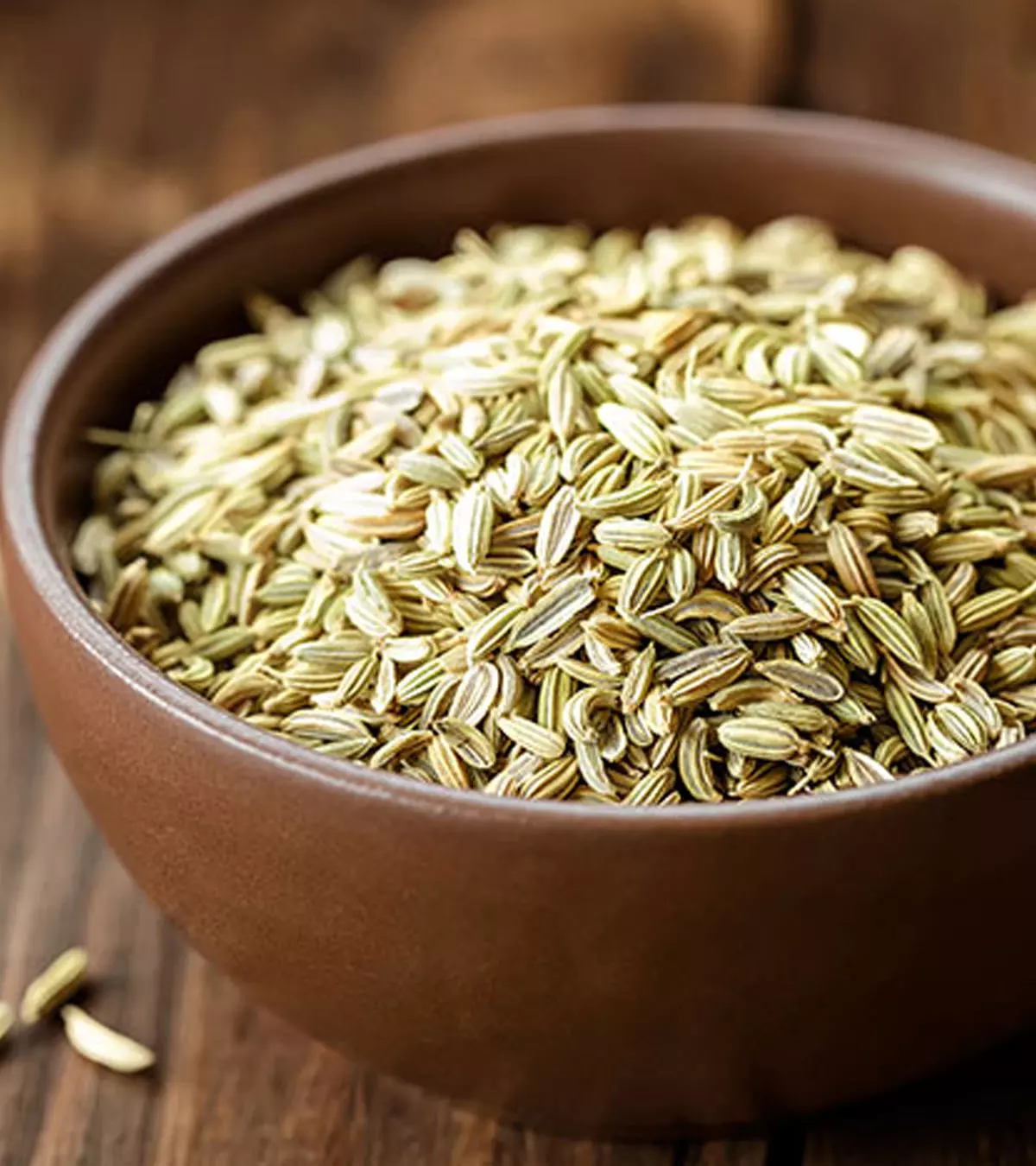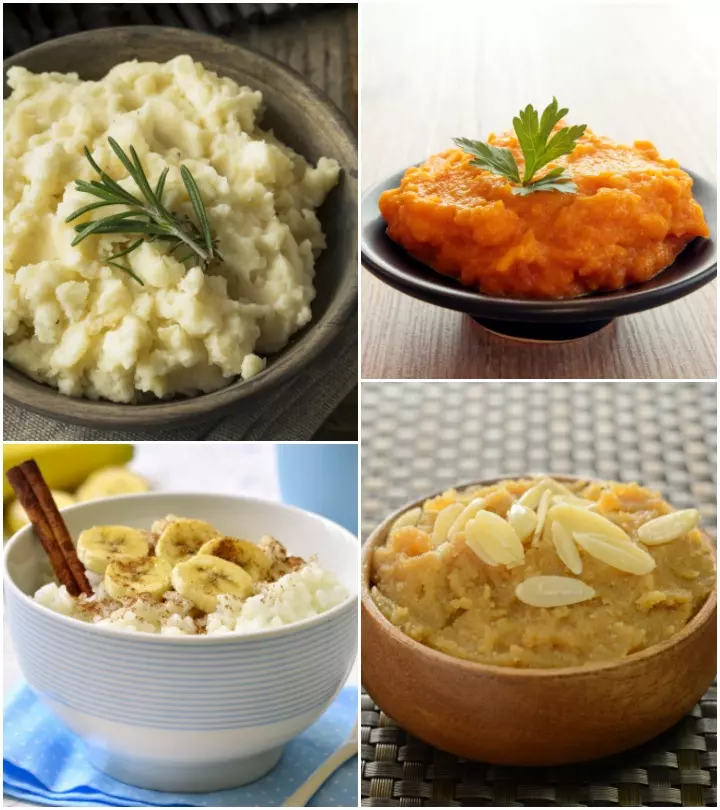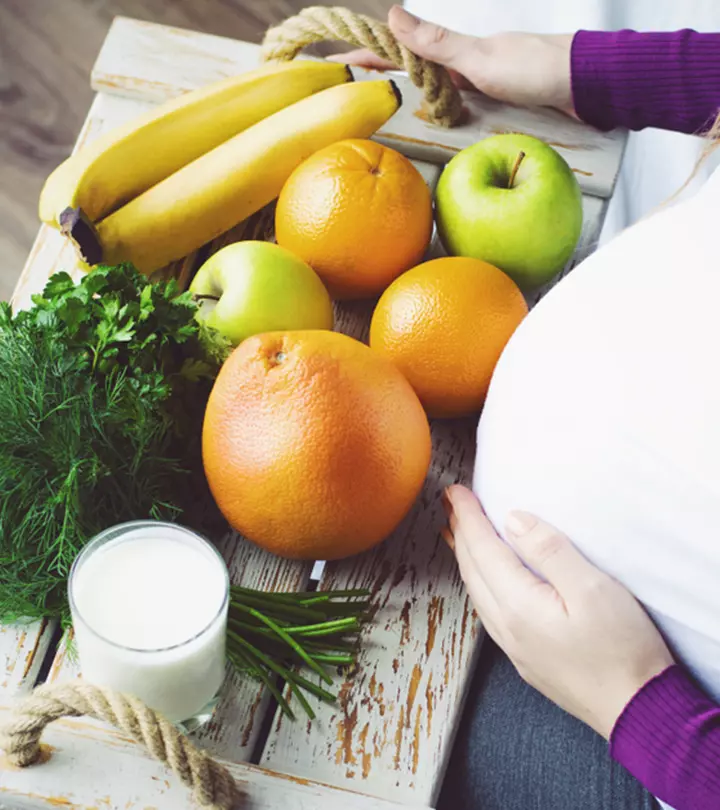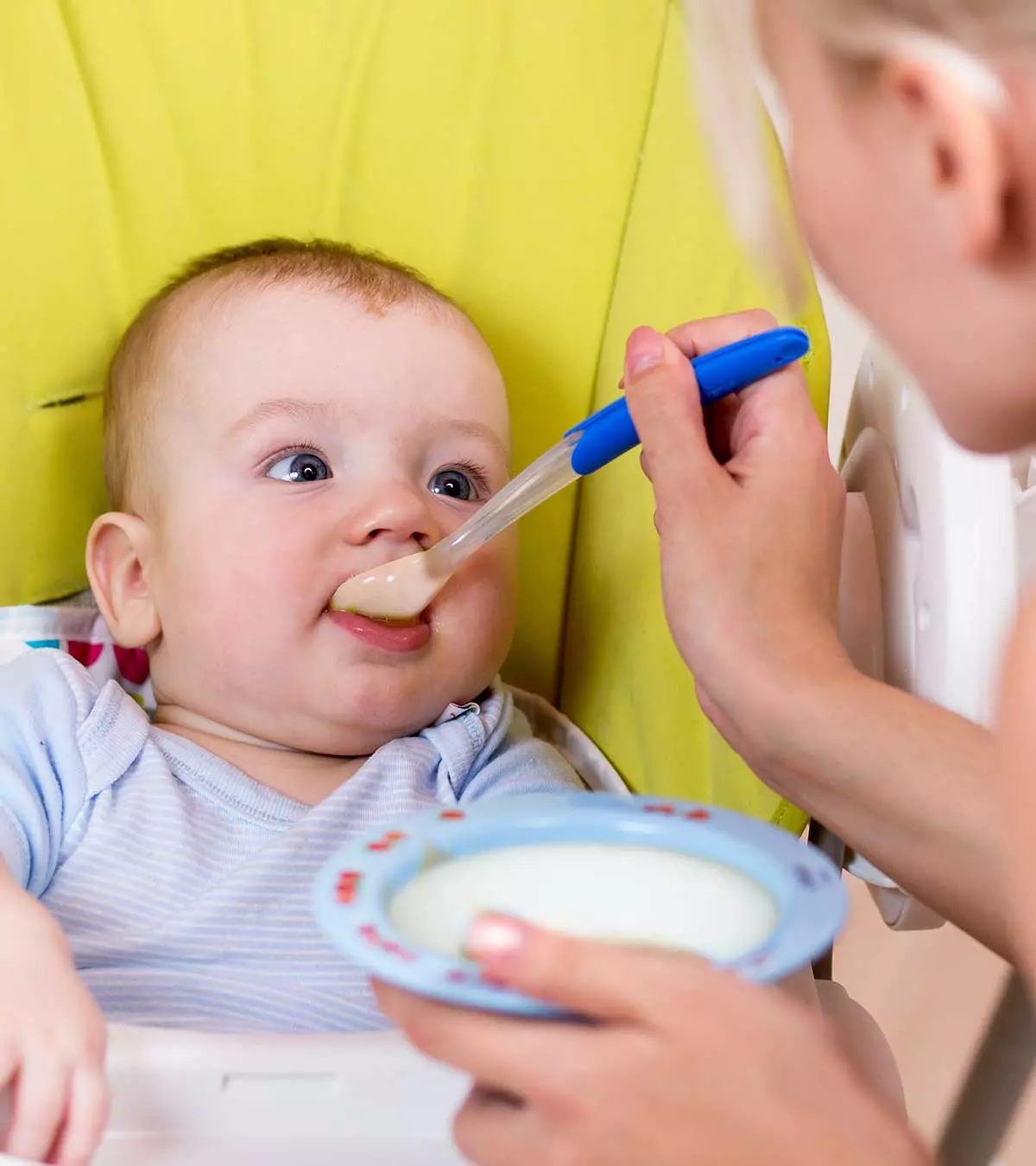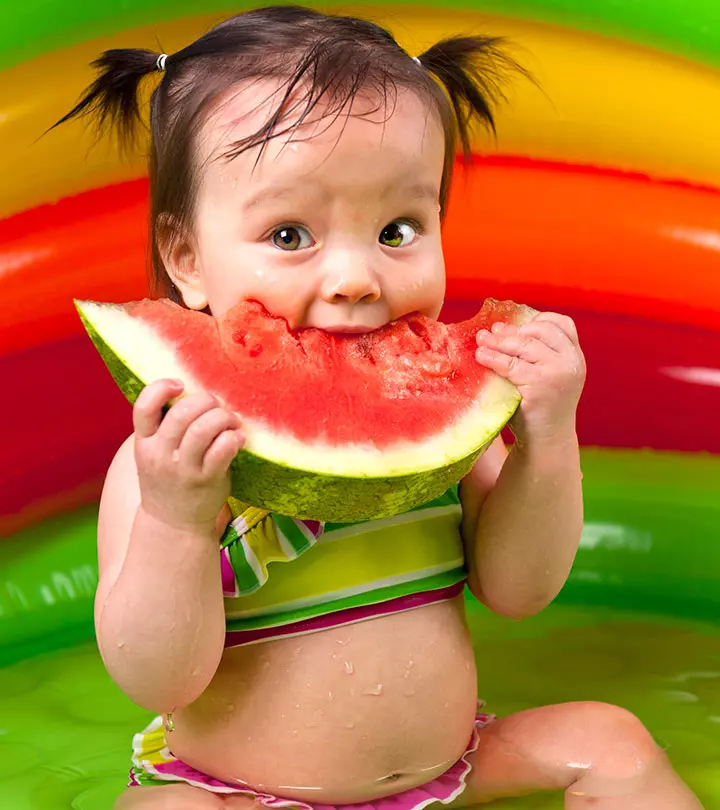
Image: Shutterstock
Watermelon for babies is a healthy food choice rich in water, fiber, and iron. It contains 93% water and several micronutrients, including vitamin B, C, E, phosphorus, magnesium, calcium, iron, and phytochemicals that are beneficial for human health (1). Thus, adding watermelon to your baby’s well-balanced diet can contribute to their proper growth and development. But, what is the recommended age for babies to eat watermelon? Keep reading to learn more about the possible health benefits of watermelon for babies with some simple watermelon recipes you can try.

Key Pointers
- Giving watermelon to babies can help in their adequate growth and development.
- Feeding watermelons helps babies to stay hydrated, boosts their digestive and immune systems, and improves their eyesight.
- Ideally, parents can introduce watermelons to their baby by eight months.
- It is important to feed freshly cut, deseeded, and organic watermelons to infants.
- Different ways to feed watermelon to babies include juices, salads, or smoothies.
When Can Babies Eat Watermelon?
Generally, watermelon is recommended for babies from eight months of age, but some parents introduce the fruit at six months of age. This can be done, too, provided you stay conscious about the possible allergic reactions to watermelon.
 Experts say
Experts sayA few sensitive babies might get rashes if they eat any type of melon due to the acidic nature of these fruits. The signs of allergy could include rashes, diarrhea, runny nose, and vomiting. At times, watermelon may lead to acidity as the fructose present in the fruit may not be entirely absorbed by the baby’s gastrointestinal system.
When it comes to infant nutrition, generalities may not apply to your baby and hence you need to consult a pediatrician before making a choice.
Nutritional Value Of Watermelon
| Here is the proximate nutritional composition of watermelon, raw (100gm) | |
|---|---|
| Water (g) | 91.45 |
| Energy (Kcal) | 30 |
| Energy (KJ) | 127 |
| Protein (g) | 0.61 |
| Total lipid (fat) (g) | 0.15 |
| Carbohydrate, by difference (g) | 7.55 |
| Fiber, total dietary (g) | 0.4 |
| Sugars (g) | 6.20 |
| Calcium (mg) | 7 |
| Iron (mg) | 0.24 |
| Magnesium (mg) | 10 |
| Phosphorus (mg) | 11 |
| Potassium (mg) | 112 |
| Sodium (mg) | 1 |
| Zinc (mg) | 0.10 |
| Fluoride (mcg) | 1.5 |
| Vitamin C (mg) | 8.1 |
| Folate (mcg) | 3 |
| Choline (mg) | 4.1 |
| Vitamin A, RAE (mcg) | 28 |
| Carotene, beta (mcg) | 303 |
| Vitamin A, IU | 569 |
| Lycopene (mcg) | 4532 |
| Phytosterols (mg) | 2 |
Source: USDA (2)
Read: Measures To Tackle Food Allergies In Babies]
 Research says
Research saysPotential Health Benefits Of Watermelon For Babies
The nutrients in watermelon can benefit the baby in the following ways (3).
- Maintains water balance: The fruit, which is 93% water and 7% flesh, helps provide proper hydration to the body. It prevents dehydration, especially during summer. The electrolytes, sodium and potassium, help reduce the chances of a heat stroke. Furthermore, it can keep babies full for longer and make them feel refreshed, especially in hot weather.
- Good for heart: Antioxidant lycopene, which is good for the heart, increases in the fruit as it ripens. Watermelons are also rich in carotenoids like neurosporene, lutein, phytofluene, phytoene, and beta-carotene. Carotenoids help in keeping the vision intact and maintaining cardiovascular health.
- Boosts immune system: Vitamin C helps in fighting infections, strengthens the immune system, and supports iron absorption.
- Improves eyesight: Vitamin A supports in strengthening the little one’s eyesight, teeth, and mucus membrane.
- Bone development: Watermelon also contains calcium and manganese which help in the development of bones. Calcium is essential for hormone secretion, and magnesium helps in building muscle and nerve function in babies.
- Vitamin B complex: Vitamin B complex is a cluster of vitamins that assist in red blood cells production, development of the nervous system, strengthening the immune system, brain function, and regulation of carbohydrate metabolism.
- Aids in digestion: Watermelon is not only a delicious summer fruit but also easy to digest. It is rich in dietary fiber, which helps in keeping the digestive tract healthy, preventing baby constipation, and irregular bowel movements.
If you are planning to add watermelon to your baby’s diet, you would want to choose the best quality fruit for them. We cover that in the next section.
How To Select Watermelon?
Melons do not fall in the list of the ‘dirty dozen foods’ of pesticide contamination. You may choose an organic or a regular watermelon. But keep these things in mind while selecting one:
- A fully grown watermelon is heavier. It should look smooth and a little dull on the top.
- You can know if it is ripe by giving a good thump with your finger. A ripe watermelon should sound hollow when tapped.
- Check for cuts, bruises, sagging depressions, and spots, which indicate rotten or over-ripened fruit.
- In a fully ripened watermelon, the ground spot or underbelly turns yellow or creamy. Farmfresh watermelons are extra crunchy, and juicy.
- Do not buy frozen or canned watermelon. Avoid buying pre-cut watermelons for babies as they have a high risk of contamination.
 Quick tip
Quick tipHow To Store And Feed Watermelon To Babies?
- Wash the fruit under running water.
- Store it in a clean, dry place if not cut. According to the US Department of Agriculture, the lycopene and beta-carotene levels in watermelon rise when they are stored uncut at room temperature.
- Cut the fruit into small pieces, remove the seeds, and then feed these seedless watermelons to your little one.
- Store the cut watermelon in the refrigerator in an air-tight container; or wrap it with a food grade plastic over the cut side to ensure the fruit retains its soft texture. Refrigerate the cut melon for not more than 24 hours, if using it for your baby.
- Bring the refrigerated melon to room temperature before serving it to your baby, to prevent a cold.
 Research says
Research saysIf your baby cannot eat the tiny solid watermelon pieces, try mashing them up a little. Registered dietitian Alicia Chacha Miller suggests, “When serving watermelon to young children, make sure it is cut and prepared appropriately for their age and ability to minimize choking risk. Watermelon can be served frozen and cut into spears, turned into juice, be mixed into smoothies, served fresh, or mashed and mixed into yogurt bowls.” You can also mix melons with bananas, carrots, avocados, peaches, blueberries, chicken, yogurt, etc.
Caution: Watermelon is full of seeds that increase the choking risk. Remove all the seeds before giving the fruit to your baby. Feed the baby only when they sit in an upright position and always supervise them while eating for safety.
Can Babies Be Allergic To Watermelon?
While it’s uncommon for babies to have a true watermelon allergy, some may experience allergic reactions due to oral allergy syndrome (OAS). Individuals with existing ragweed and pollen allergies often may develop an allergy to watermelon. The proteins in raw watermelon are similar to those found in pollens and ragweed. Therefore, a pediatrician must diagnose potential allergies in babies. Treatment approaches align with those for adults (4). If you are introducing watermelon to your baby, follow a ‘three-day wait rule’ to rule out sensitivity, intolerance, or allergy caused by watermelon. In case of an allergic reaction, seek prompt medical guidance.
Watermelon Recipes For Babies
Here are more ways to offer watermelon to your baby. Try these simple watermelon recipes to provide refreshing fruit treats to your little one.
1. Watermelon puree
Preparation time:
10 minutes
You will need:
- 1 watermelon (cut, de-seeded)
How to:
- Place the slices in a blender and make a watermelon puree for the baby.
- If you would like, add any other food or cereal to thicken it up.
By adding other pureed fruits to the watermelon puree, you may expose your baby to different flavors. Other fruit purees for babies that go well with the watermelon puree include avocado, banana, and mango.
Note: Do not freeze melon puree. The frozen watermelon puree gives a thawed product that could be tasteless and gritty and not suitable for weaning.
2. Watermelon salad
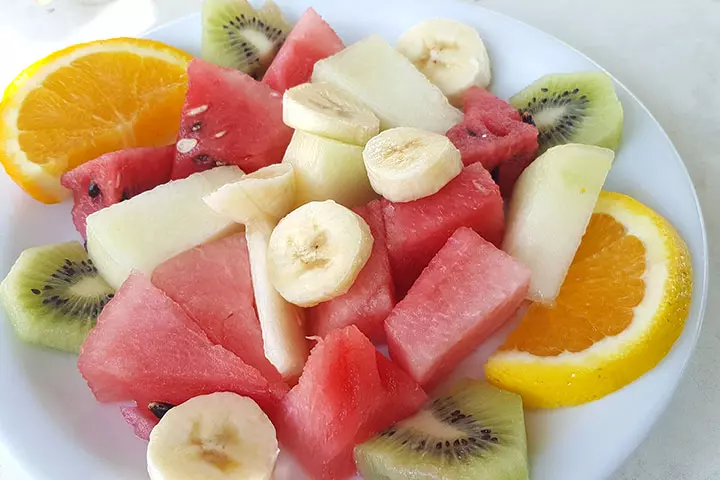
Preparation time: 15 minutes
You will need:
- 1 small banana (sliced)
- 1 small peach (diced)
- 1/2 cup watermelon (cubes)
How to:
- Mix all the fruits in a bowl and mash a little to serve as finger food.
Note:
You may mix yogurt to the fruit salad.
3. Watermelon soup

Preparation time: 15 minutes
You will need:
- 1/4 cup apple juice (unsweetened)
- 1tbsp natural yogurt
- 1/4 cup vegetable stock
- 1/2 cup watermelon
How to:
- Combine all the ingredients in a blender and sprinkle a pinch of cinnamon if desired.
4. Watermelon juice

Preparation time: 10 minutes
You will need:
- 1 cup sweet watermelon (cut and de-seeded)
How to:
- Puree the watermelon slices in a blender.
- Strain the juice and squeeze the flesh
- Feed the extracted juice to your baby.
 Quick tip
Quick tip5. Berry melon punch

Preparation time: 15 minutes
You will need:
- 1 cup watermelon (diced, de-seeded)
- 1tsp lemon juice
- 2 strawberries (chopped)
- 1tbsp sugar syrup
How to:
- Mix all the ingredients in a food processor by adding enough water. Add sugar as per your taste since watermelon already contains natural sugar.
6. Watermelon smoothie
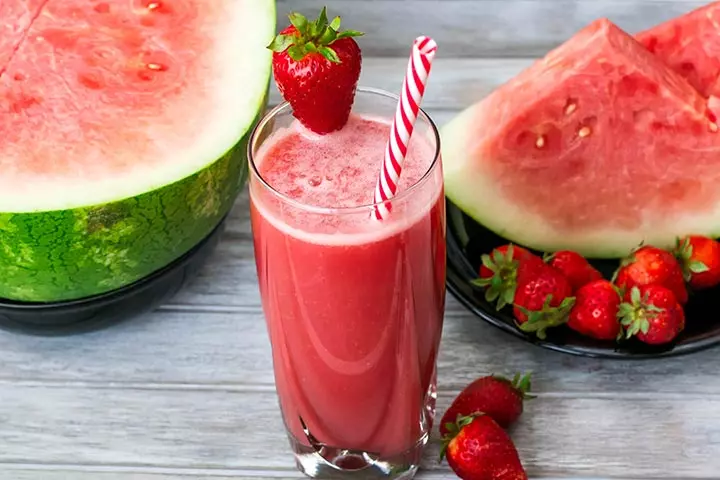
Preparation time: 15 minutes
You will need:
- 1 cup chilled, chopped watermelon
- 1/2 cup banana slices
- 2tbsp coconut milk
- 1tbsp vanilla ice cream
How to:
- Add all the ingredients to a juicer and mix to make a soft smoothie.
Uneku, a blogger and cooking enthusiast, shares one of her favorite smoothies made with banana, apple, watermelon, and almond or soy milk (optional), “I had this watermelon smoothie recently and I loved it. It is so refreshing and the combination of banana, apple and watermelon gives the smoothie a sweet, velvety, and refreshing taste. This is also a great smoothie for babies, you could blend just the watermelon and banana for them (i).”
Watermelon, a summer fruit, is packed with water and many other micronutrients and minerals. Therefore, watermelon for babies is indeed a healthy choice. Proper cutting and storage of watermelon are important to prevent any food infections. Some babies may be allergic to watermelon. If you notice any allergic symptoms such as rashes or other gastrointestinal symptoms in your baby after watermelon consumption, you must consult a healthcare professional. You can try many different and interesting watermelon recipes to bring versatility to your baby’s diet.
Frequently Asked Questions
1. Can watermelon cause red stool in babies?
Yes. The color of the food a baby eats affects the color of their stool. So, watermelon may lead to a red stool in babies (5).
2. Which fruits are good for a six-month baby?
Soft fruits that can be mashed into a smooth paste are good for a six-month baby. Examples of such fruits are cooked apples and pears, bananas, papaya, and mango for a baby (6).
- Banana
- Papaya
- Mango
- Cooked apples
- Cooked pears
4. How much watermelon should babies eat?
Babies aged 4 to 6 months can enjoy 1 to 2 tablespoons of plain, strained fruit, including watermelon, once or twice a day. If your baby is between 7 and 8 months old, they can have 2 to 3 tablespoons of plain, strained fruit twice a day. However, it’s always a good idea to consult a pediatric dietician for personalized advice (7).
5. Is watermelon good for babies with reflux?
Watermelon is usually considered safe for babies with reflux because it has low acid and high water content, which can help soothe and hydrate them (8). However, it is recommended to introduce the fruit gradually and observe your baby’s reaction. If you have any concerns, consult your pediatrician before introducing new foods to your baby.
Infographic: How Should Watermelon Be Stored And Given To Babies?
Watermelons are delicious, watery fruits relished in the summertime. Some like to have the fruit directly, while others relish its juice. If you wish to introduce this fruit to your baby, you must follow certain precautions. Go through the infographic below and find out how to feed and store watermelons safely for infants. Illustration: Momjunction Design Team
Illustration: Amazing Health Benefits Of Watermelon For Babies
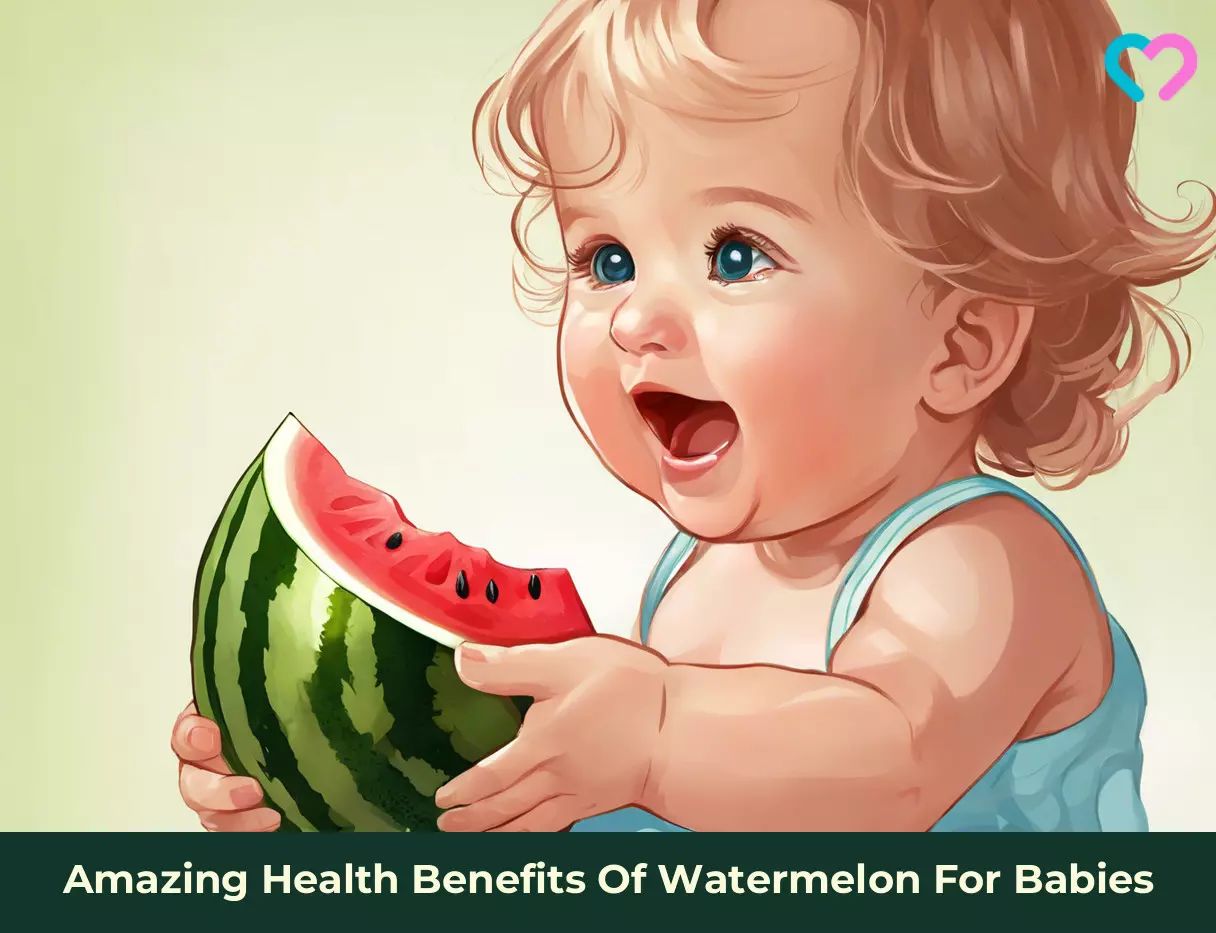
Image: Stable Diffusion/MomJunction Design Team
Discover how to prepare a nourishing watermelon puree for babies (6 months+) that is delicious, immune-boosting, and perfect for summer.
Personal Experience: Source
MomJunction articles include first-hand experiences to provide you with better insights through real-life narratives. Here are the sources of personal accounts referenced in this article.
i. Watermelon Smoothie;https://kaunakitchen.com/watermelon-smoothie/
References
- Ambreen Naz et al.; Watermelon lycopene and allied health claims; National Centre for Biotechnology Information (2014)
- Watermelon, raw; Full Report 09326; USDA
- 7 benefits of watermelon for child growth; Illiana Watermelon
- Is Watermelon Healthy?; Food Revolution Network
- Blood in poop; The Ohio State University
- What to feed your baby; NHS
- Feeding Guide for the First Year; Stanford Medicine Children’s Health
- The Best and Worst Foods for Acid Reflux; University Hospitals
- Emilia Vassilopoulou et al., Complementary Feeding Practices: Recommendations of Pediatricians for Infants with and without Allergy Risk; National Centre for Biotechnology Information (2025)
- Kristin Fulgoni et al., Watermelon Intake Is Associated with Increased Nutrient Intake and Higher Diet Quality in Adults and Children, NHANES 2003–2018; National Centre for Biotechnology Information (2025)
- Penelope Perkins-Veazie and Julie K Collins; Carotenoid changes of intact watermelons after storage; National Centre for Biotechnology Information (2006)
Community Experiences
Join the conversation and become a part of our nurturing community! Share your stories, experiences, and insights to connect with fellow parents.
Read full bio of Jyoti Benjamin
- Alicia Chacha Miller is a registered dietitian specializing in maternal and pediatric nutrition. She holds an MS in Nutrition Science from the University of Southern California and founded Cardamom Nutrition.
 Alicia Chacha Miller is a registered dietitian specializing in maternal and pediatric nutrition. She holds an MS in Nutrition Science from the University of Southern California and founded Cardamom Nutrition.
Alicia Chacha Miller is a registered dietitian specializing in maternal and pediatric nutrition. She holds an MS in Nutrition Science from the University of Southern California and founded Cardamom Nutrition.
Read full bio of Swati Patwal
Read full bio of Rohit Garoo
Read full bio of Anindita Ghatak






